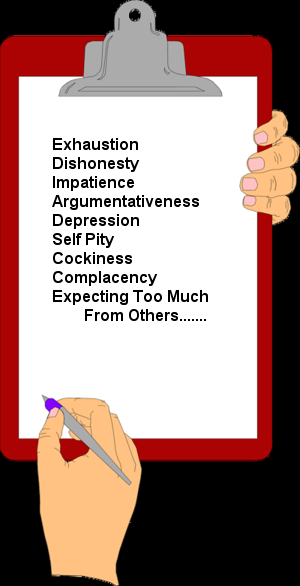Preventing Relapse
Addicts relapse when it is more painful to stay sober than it is to get “high”. The immediate benefits of ceasing drug and alcohol use include:
improved health, better sleep , return of appetite, and clearer thinking. However, all addicts eventually face a challenge even more difficult than stopping drinking or using drugs — coping with life without them! Doing so involves a whole lot more than just “putting the cork in the bottle”. They must they learn a completely new way of life. We often refer to this process as “recovery” — the Bible calls it “sanctification” — a definite ongoing program of personal growth

Major Causes of Relapse
- Denial
inability to accept that one is indeed addicted to alcohol and/or drugs and that it is a primary cause of life problems. - Post Acute Withdrawal Syndrome
inability to cope with a set of very stressful, physiologically-based symptoms that occur only after use of alcohol and drugs has stopped - Emotional Dysfunction
inability to cope with feelings such as grief, depression, stress, fear, etc., without mind altering substances. - Relational Dysfunction
inability to develop and maintain healthy relationships with others.
Preventing Relapse Read More »









